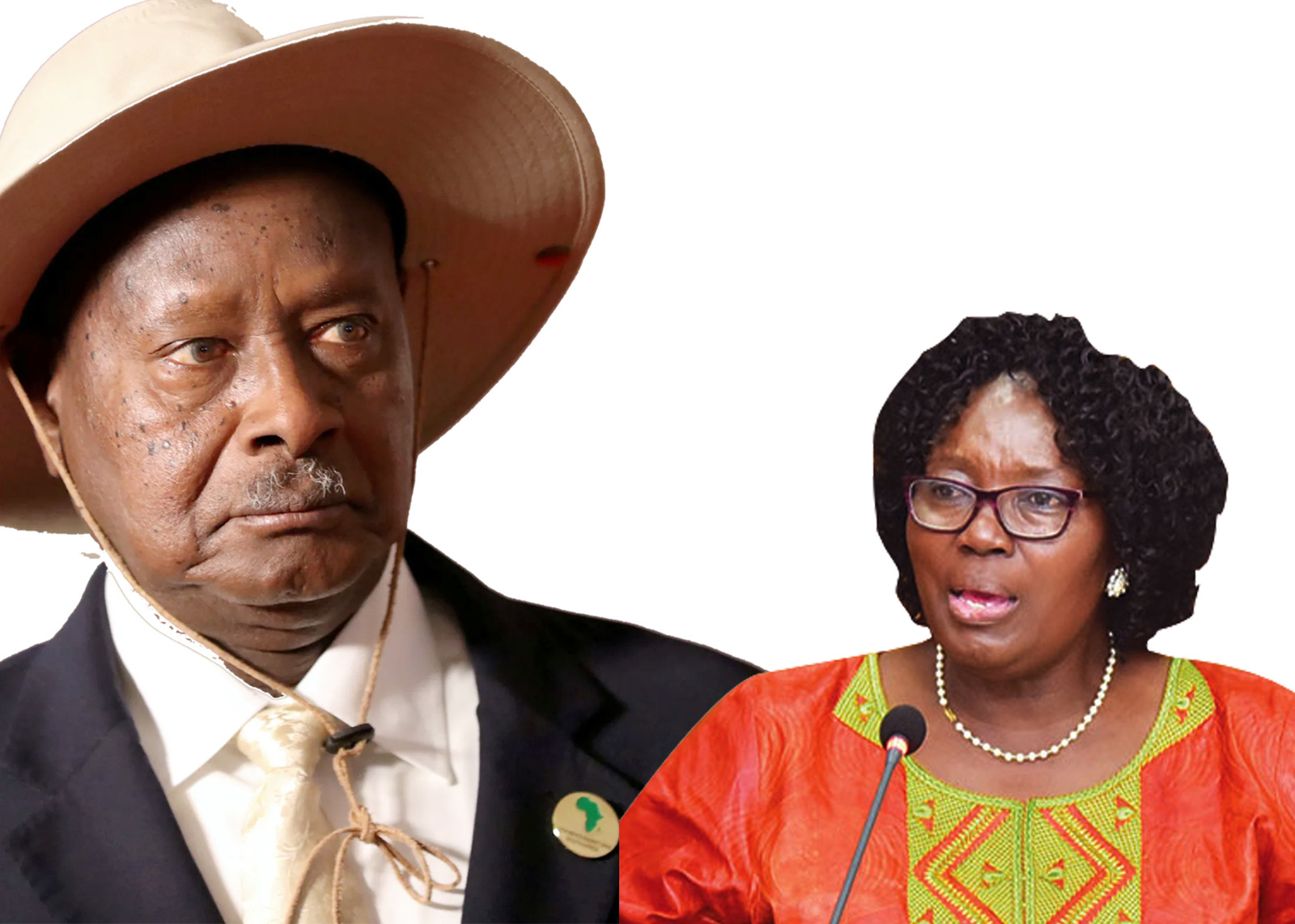The coaster came to a halt after the long journey along the winding, stony Ruhija-Buhoma road at Ruhija Trading Centre, Kanungu District.
A 15-minute trek up one of the several hills that dot this rather quiet village, through scattered wattle and daub houses, led us to slashed, flat piece of land overlooking the mist-covered Bwindi Impenetrable Forest.
The homestead belongs to Deo, one of Caleb Ngambeweza’s eight children. Standing at barely four feet, Ngambeweza has aged gracefully for someone who claimed he was 120 years.
He is one of the 64 Batwa living in the Ruhija Mpuga-Omukikome. About three-quarters of this number is under 10 years. The rest are elderly. There was barely a single youth.
“Those go to town and never come back,” Ngambeweza volunteered in the local Rukiga dialect after we were treated to various performances that depicted their culture from the past. These included song and dance as well as skits to portray hunting, gathering and traditional fire making.

Most of the children, Ngambeweza says are a product of sexual relationships between Bakiga men and the Batwa girls, most underage.
“Bakiga men will never marry our women even after making them pregnant. They will abandon them the moment they realize that they are pregnant,” he says.
Also, there is a myth that when non-Batwa sleep with a Batwa woman then they will never acquire sexually transmitted diseases. This is probably the main reason why the indigenous Batwa – child with both parents being Batwa – is shrinking and the birth of non-pygmy children increasing.
But that is the least of their worries.
This marginalised group of people were in 1991 evicted from the rainforest. Their counterparts – the Twa of Rwanda – were not spared either on the other side of the border, taking on the tag of ‘Forgotten Tribe.’
For years, the Batwa are said to have lived in coexistence with the forests, wildlife and most importantly, the gorillas. Their way of life then, was hunting and gathering in the Bwindi and Mgahinga forests.

Then they were forced out by the government to pave way for the introduction of gorilla tourism and turn the forest into a national park.
Stories are told of how one day, the Batwa were ordered by men with guns to immediately leave the forest. They were so scared they ran off in different directions that most of them have never seen their loved ones since then.
Without compensation in the form of land (although some sources say government, through some NGO donated an acre of land), money and the skills to hunt and gather outside the forest, most were reduced to begging, stealing and tilling farms or picking tea in farms owned by the Bakiga, whom they accuse of not paying them.
According to Rivella Turyomurugendo, one of the senior Batwa women in the camp, even when they get paid, the money is barely enough to buy paraffin.
“These people (Bakiga) are not the best. They look down on us because they believe we are low life. And even when they commit all sorts of crimes against us like impregnating our girls, we do not have anywhere to report. The police will say, ‘you are a Mutwa, what do you expect us to do for you’,” she says.
They also decry the lack of government support.
“You see these houses,” Ngambeweza says as he points at one that could collapse anytime, “No person should be living in such a structure. Other people have more permanent structures, but see what we call home. Our representatives in Parliament have totally forgotten about us even when they promise us better health and education services on top of better living conditions.”
Also they can barely compete in the markets when they decide to sell their produce which is usually considered inferior.

Enter Change A Life Bwindi
Change A Life Bwindi is a non-profit organisation which works to ensure the delicate balance between the environment, wildlife conservation and sustainable development in Bwindi – Ruhija area.
According to Tina Katushabe, the founder and project sustainable manager, this is done through implementing livelihood education and sustainable development programmes among men, women and children living in the communities bordering the National Park.
“I started by working with one special family in 2014. Together with a tourist friend of mine called Neil, we asked them what they wanted in order to improve their lives outside of the forest,” Katushabe, a Mukiga says. “They were open and said they wanted to learn how to weave baskets.”
That gave birth to the basket weaving project. Here, 12 Batwa women under their group, Batwa Weaving Group, were trained how to make colourful baskets, locally known as Nyamuraza from raffia and grass that can easily be found without buying. The particular grass – Orushwiga – provides the colours.
Plain Orushwiga is used to dye the raffia green, while ash added to Orushwiga will turn the raffia brown. Yellow and orange raffia can also be achieved by adding other local grasses and tubers.
Nyamuraza’s unique colour patterns represent the terraced hills of the region, Katushabe says. These include cultivation, harvesting or lying fallow.
But it is not only basket weaving that Change A life Bwindi has taught the women and men of Ruhija.

The men are taught how to organically grow mushrooms and keep bees for honey, while early marriage victims and school dropouts, especially girls have been introduced to tailoring.
These products –especially the baskets- are then bought from the weavers and taken to a project centre in Ruhija.
“They also get some proceeds from the sales made,” Katushabe says.
This way, the women have managed to complement the meagre earnings from tilling land and picking tea.
The men however, still have a long way to go and need to be sensitised.

“I still prefer to work with women because they have the biggest role to play in the homestead. The men will usually rush to drink alcohol the moment they are paid so a lot of sensitation needs to be done,” Katushabe says.
She however, decries the high taxes imposed on the crafts, especially those that are earmarked for export, saying this is not helpful especially to a community she believes will be extinct in a few years.
“The taxes on these products are exorbitant. If only we can get some kind of holiday, it will be a win-win situation for everyone,” she says.
As she speaks, Ngambeweza tells another group of journalists although he is comfortable, he still dreams of going back to the forest, where, he at least he felt loved.
All photos by Lovati Emmanuel Mugabi @MetMedia
Do you have a story in your community or an opinion to share with us: Email us at Submit an Article






